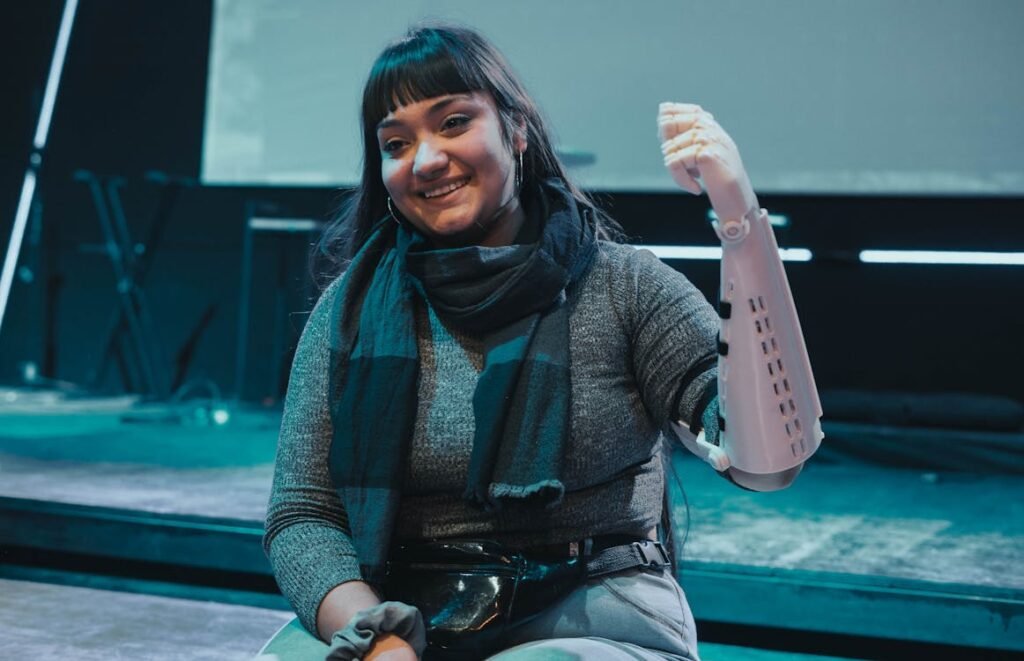Losing a limb is a life-changing experience that goes beyond physical adjustments. It can bring emotional challenges, including feelings of grief, frustration, or uncertainty. The psychological impact of limb loss is deeply personal and varies from person to person, but it’s an integral part of the recovery journey that deserves as much attention as physical rehabilitation.
Coping with these emotions is not about “getting over it” but about finding ways to adapt, heal, and move forward. In this article, we’ll explore strategies to manage the psychological impact of limb loss, highlighting the importance of emotional resilience, support systems, and mental health care. With the right tools and guidance, it’s possible to rediscover strength, confidence, and a sense of purpose.
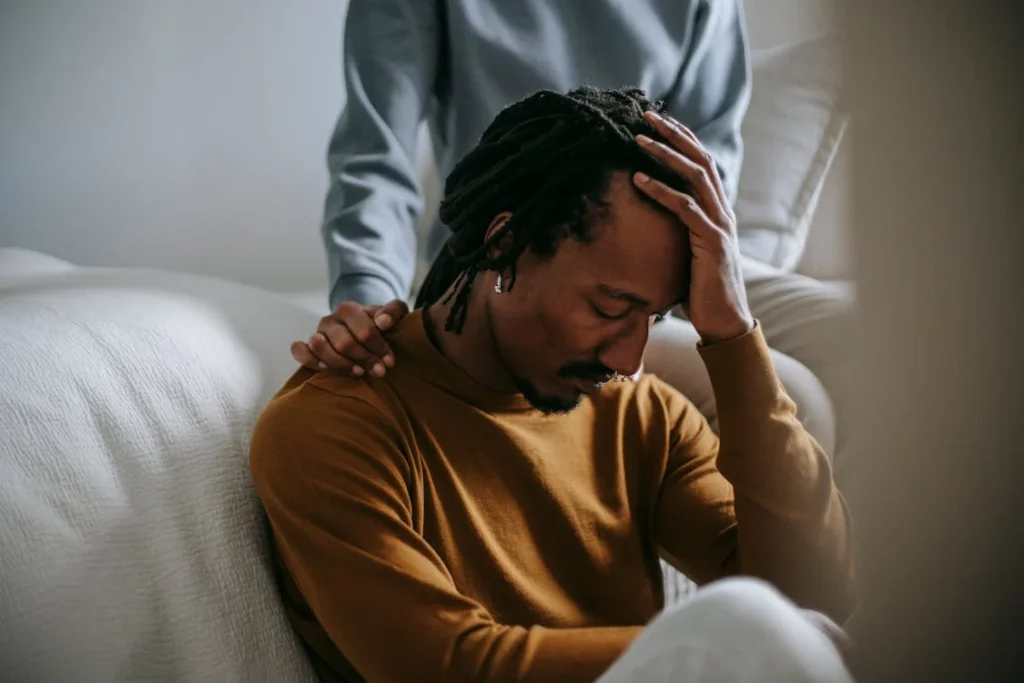
Understanding the Emotional Journey of Limb Loss
The psychological impact of losing a limb often begins long before the physical healing process is complete. For many individuals, it’s a journey marked by a range of emotions, including shock, denial, anger, sadness, and eventually, acceptance.
Each stage of this journey is unique and influenced by factors such as personal resilience, support systems, and the circumstances surrounding the amputation.
The Initial Shock and Grief
The first stage following limb loss is often shock. The sudden change to one’s body and the accompanying lifestyle adjustments can feel overwhelming. For some, the reality of limb loss takes time to sink in, and during this period, emotions may feel distant or suppressed.
Others may immediately experience intense feelings of grief, mourning the loss of not just a limb, but also the independence or capabilities it represented.
Grief is a natural response to any significant loss, and it’s important to allow yourself to feel these emotions without judgment. Suppressing grief can delay emotional recovery, while acknowledging and processing it creates space for healing.
During this time, professional counseling or support groups can provide a safe outlet for expressing feelings and finding comfort in shared experiences.
Anger, Frustration, and Adjustments
As the reality of limb loss becomes clearer, it’s common to feel frustration or anger. These emotions may be directed at the situation, at yourself, or even at others.
Tasks that once felt simple may now feel challenging or impossible, which can lead to feelings of helplessness or impatience.
This stage often involves significant adjustments, both mentally and physically. Learning to navigate daily life with a prosthetic limb or mobility aid can be frustrating, particularly when progress feels slow.
It’s during this phase that patience becomes crucial. Setting small, achievable goals and celebrating each success, no matter how minor, can help counteract feelings of frustration and build a sense of accomplishment.
Anger and frustration can also stem from a sense of loss of control.
Engaging in activities that restore a sense of agency, such as choosing your prosthetic device or participating actively in rehabilitation planning, can help you reclaim some of that control and foster a sense of empowerment.
The Road to Acceptance
Reaching a place of acceptance doesn’t mean you won’t have moments of sadness or frustration. Rather, it signifies a shift in perspective—an ability to see yourself beyond the physical loss and embrace the possibilities of your new reality.
Acceptance is not a destination but a process, one that unfolds over time and with consistent effort.
As you move toward acceptance, developing a new sense of identity becomes a central focus. This may involve redefining how you perceive yourself, shifting the focus from what you’ve lost to what you can achieve.
Exploring hobbies, career paths, or personal goals can help you rebuild your sense of purpose and create a fulfilling life.
Acceptance also involves recognizing and embracing your emotions without letting them define you.
Seeking professional mental health support, engaging with supportive friends and family, and connecting with others who’ve experienced limb loss can all play a role in fostering emotional resilience and long-term well-being.
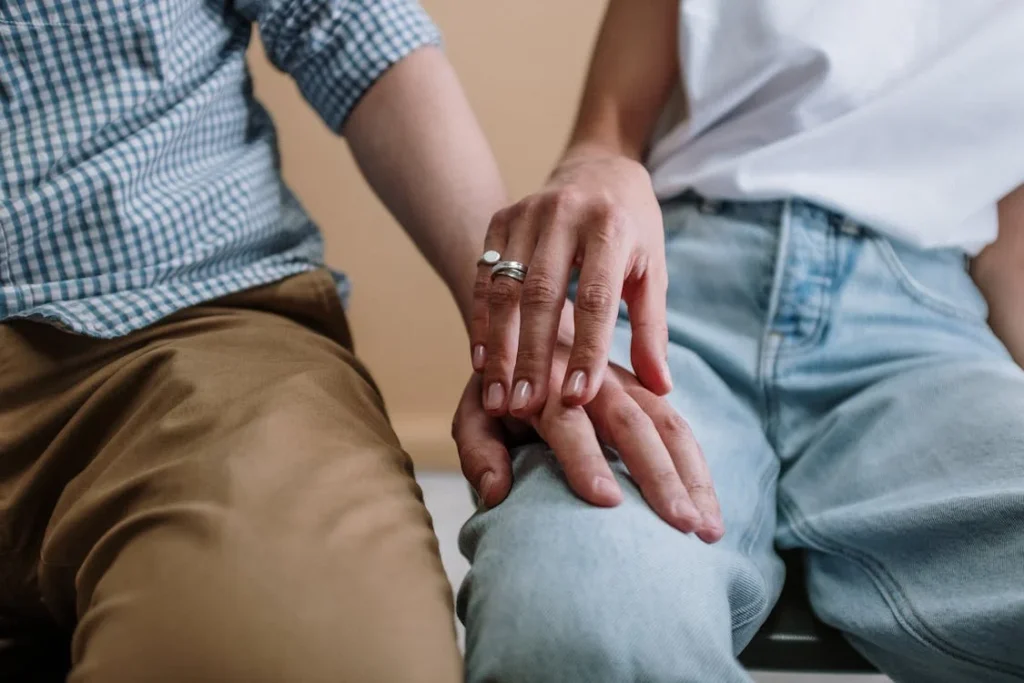
Building Emotional Resilience After Limb Loss
Emotional resilience is the ability to adapt and recover from challenges, and it plays a crucial role in coping with the psychological impact of limb loss. Resilience is not something you’re born with; it’s a skill that can be nurtured and developed over time.
By cultivating emotional strength, you can better navigate the ups and downs of recovery and regain a sense of stability and control.
The Power of Positive Thinking
While it’s natural to feel moments of doubt or sadness after limb loss, focusing on positive aspects of your life can help shift your mindset. Positive thinking doesn’t mean ignoring the challenges you face; instead, it involves finding reasons to hope and appreciate what’s possible.
For instance, reflecting on small victories during rehabilitation, like mastering a new movement with a prosthetic or completing a daily task independently, can help reinforce a sense of progress.
Gratitude can also play a significant role in fostering positivity. Keeping a journal where you note three things you’re grateful for each day can shift your focus toward what’s going well.
Over time, this practice can help you develop a habit of identifying strengths and opportunities, even in difficult moments.
Establishing Routines and Goals
Structure provides a sense of normalcy and control, both of which are essential for emotional well-being. Establishing daily routines can create a rhythm that makes life feel more predictable and manageable.
Whether it’s scheduling regular therapy sessions, setting time for hobbies, or practicing mindfulness, routines give your days purpose and direction.
Setting realistic goals is another way to build resilience. Goals give you something to work toward and can act as a motivator during tough times.
These goals don’t need to be monumental; even small objectives, like taking a short walk or cooking a meal, can instill a sense of achievement. Celebrating these milestones reinforces your ability to adapt and thrive, boosting confidence in your abilities.
Reaching Out for Support
Isolation can amplify negative emotions, making it harder to cope with the psychological impact of limb loss. Reaching out for support from loved ones, healthcare professionals, or peers who’ve experienced similar challenges can make a significant difference.
Talking openly about your feelings with trusted individuals can help you process emotions and gain new perspectives.
Peer support groups, whether in-person or online, offer a safe space to share experiences, ask questions, and learn from others who’ve been through similar journeys. Knowing you’re not alone can foster a sense of connection and reduce feelings of loneliness.
Professional counseling or therapy is another invaluable resource for building resilience. A trained therapist can help you develop coping strategies, address emotional barriers, and provide guidance tailored to your situation.
Therapy sessions can also help you explore unresolved feelings or fears, creating space for emotional growth and healing.
Mindfulness and Relaxation Techniques
Mindfulness and relaxation techniques are powerful tools for managing stress and cultivating resilience. Practices like meditation, deep breathing, or yoga can help calm the mind, reduce anxiety, and improve focus.
These techniques teach you to stay present in the moment, making it easier to let go of worries about the future or regrets about the past.
Over time, incorporating mindfulness into your daily life can help you approach challenges with a clearer mind and a calmer perspective.
Even just a few minutes of mindful breathing each day can create a profound sense of inner peace and balance, empowering you to face recovery with renewed strength.
By actively working to build emotional resilience, you can transform the challenges of limb loss into opportunities for growth and self-discovery. This strength allows you to adapt to new circumstances, embrace change, and find fulfillment in the next chapter of your life.
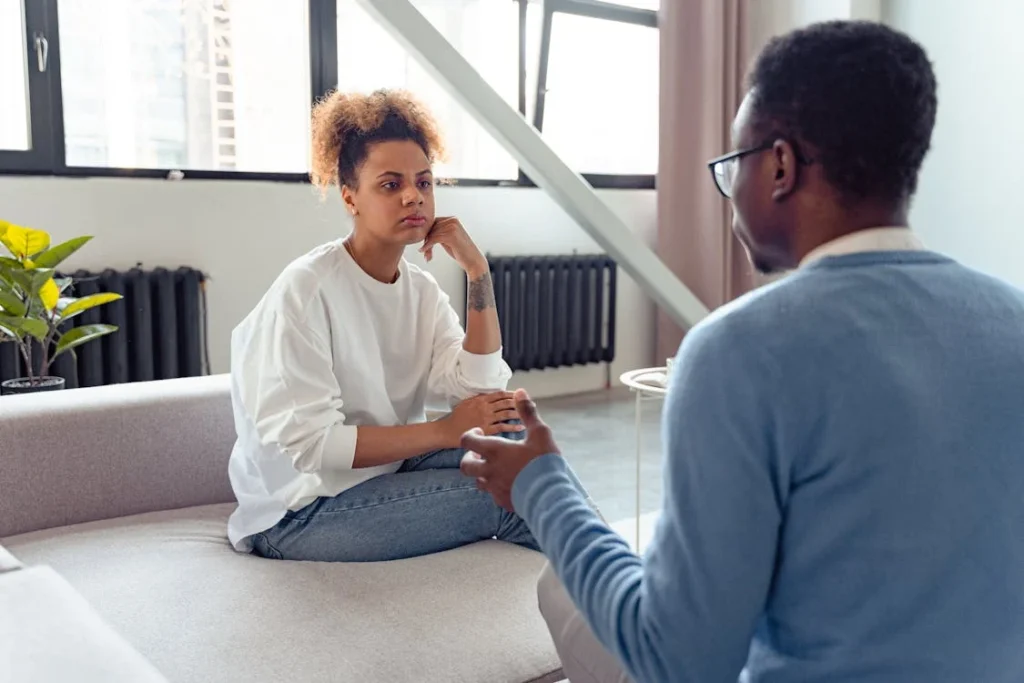
The Role of Professional Mental Health Support
The emotional challenges of limb loss can sometimes feel overwhelming, and it’s important to know that seeking professional mental health support is a sign of strength, not weakness.
Mental health professionals, such as counselors, therapists, or psychologists, can offer valuable guidance to help you navigate the complexities of grief, anxiety, or depression that may accompany limb loss.
Their expertise provides a structured and safe environment for exploring your emotions, addressing concerns, and building healthy coping mechanisms.
Counseling for Processing Grief and Loss
Losing a limb often brings feelings of grief that are similar to mourning the loss of a loved one. This grief is deeply personal and may involve sadness, denial, or even anger as you adjust to your new reality.
A counselor or therapist trained in trauma or loss can help you process these emotions in a healthy way, giving you tools to work through your feelings and find acceptance at your own pace.
Therapists use various approaches to address grief, such as cognitive-behavioral therapy (CBT), which helps identify and challenge negative thought patterns, or acceptance and commitment therapy (ACT), which focuses on embracing your emotions and finding meaning in your experience.
These techniques encourage emotional growth and can make the transition to your new lifestyle feel more manageable.
Managing Anxiety and Depression
Anxiety and depression are common among individuals adjusting to limb loss, especially when faced with uncertainty about the future. You may worry about how others perceive you, your ability to perform daily tasks, or the challenges of using a prosthetic device.
Depression can manifest as persistent sadness, feelings of hopelessness, or a lack of interest in activities you once enjoyed.
Professional mental health support can help you recognize these symptoms and address them early. Therapists can teach strategies for managing anxiety, such as relaxation exercises, grounding techniques, or exposure therapy for situations that feel intimidating.
For depression, therapy often focuses on identifying positive actions and setting small, achievable goals to rebuild motivation and purpose.
In some cases, medication may be recommended to complement therapy. A psychiatrist can assess your needs and discuss whether medication might be a helpful part of your treatment plan.
The Benefits of Group Therapy
Group therapy provides a unique opportunity to connect with others who are also coping with limb loss. Sharing experiences, challenges, and successes in a group setting fosters a sense of community and understanding that can be profoundly healing.
In group therapy, you’ll find that others share similar fears and frustrations, which can help normalize your emotions and reduce feelings of isolation.
It’s also a space where you can learn practical tips and coping strategies from those who have navigated similar paths. The encouragement and support from peers often create a strong sense of belonging, boosting confidence and resilience.
Accessing Specialized Support
Mental health support for limb loss doesn’t always follow a one-size-fits-all approach. Some professionals specialize in working with amputees, offering tailored therapy that addresses the unique psychological and emotional challenges of limb loss.
These specialists understand the impact of body image changes, phantom limb sensations, and adapting to prosthetics, providing insights that general therapists may not.
By working with professionals who understand your journey, you can feel more supported and empowered throughout your recovery.
Specialized support ensures that your therapy sessions are relevant and aligned with the specific issues you face, helping you make meaningful progress.
Seeking professional mental health support is an essential part of adapting to life after limb loss. It provides the tools and guidance needed to process emotions, build resilience, and rediscover a sense of purpose and fulfillment.
With the right help, you can navigate the psychological challenges of limb loss and create a life that is both meaningful and joyful.
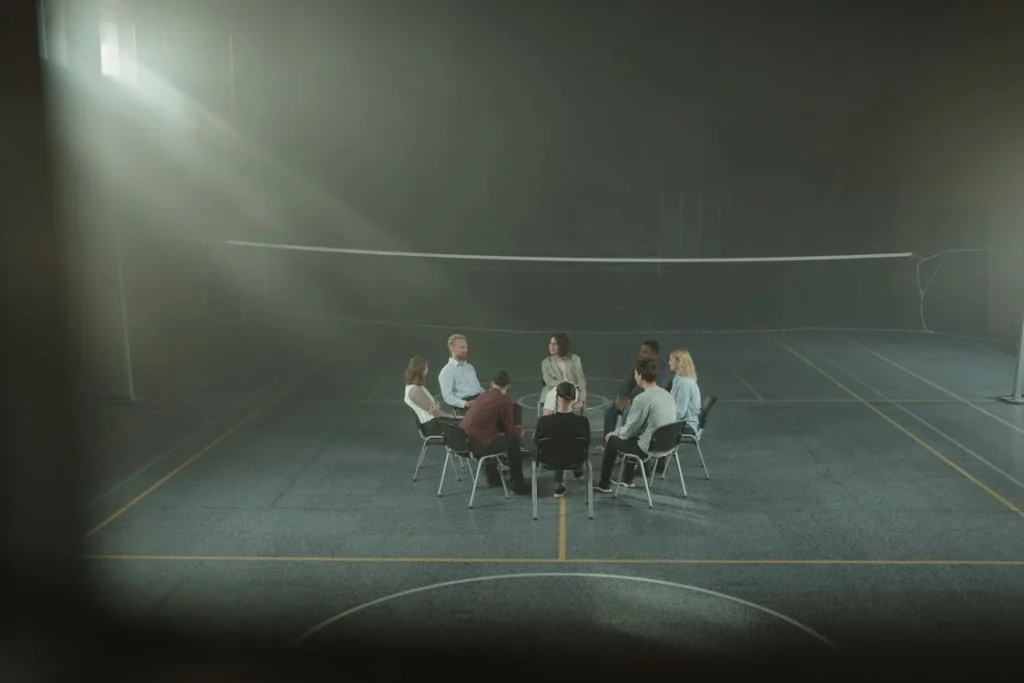
The Importance of Social Support Systems
The journey of adapting to life after limb loss is not one that should be traveled alone. Social support systems—whether they include family, friends, peers, or professional networks—are vital in helping individuals navigate the physical and emotional challenges of this transition.
These support systems provide not only practical assistance but also emotional reassurance, fostering a sense of belonging and resilience during recovery.
The Role of Family and Close Friends
Family members and close friends are often the first line of support after an amputation. Their understanding, patience, and encouragement can make a significant difference in how you approach recovery.
Loved ones can help with practical tasks, such as transportation to medical appointments or assistance with daily routines, easing the burden as you adjust to new challenges.
Emotional support from family and friends is equally important. Having someone to talk to, share your feelings with, or simply spend time with can help reduce feelings of isolation and provide comfort during difficult moments.
Open communication is key to fostering these connections. Expressing your needs and emotions honestly allows your loved ones to offer the type of support that will benefit you most.
It’s important to recognize that your family and friends may also need time to adjust to the changes in your life.
Providing them with resources or involving them in your rehabilitation journey can help them better understand your experience and strengthen their ability to support you effectively.
Peer Support: Connecting with Others Who Understand
One of the most powerful forms of support comes from connecting with others who have experienced limb loss.
Peer support groups, whether in-person or online, create a space where individuals can share their stories, exchange advice, and celebrate each other’s progress. These connections foster a sense of community and understanding that is deeply reassuring.
Peers who have been living with limb loss for longer periods can serve as mentors, offering practical tips for adapting to prosthetics, overcoming emotional challenges, or navigating social situations.
Their firsthand experience provides valuable insights that can inspire confidence and hope.
Online forums and social media groups also offer accessible platforms for finding peer support, especially for individuals who may have difficulty attending in-person meetings.
These virtual communities allow for connection and sharing at any time, helping to bridge the gap between geographic distances and scheduling constraints.
Professional Support Networks
In addition to personal connections, professional support networks play a vital role in recovery.
Occupational therapists, physiotherapists, counselors, and prosthetists form a team of experts who guide you through the physical and emotional aspects of limb loss. Their expertise helps you build the skills and confidence needed to adapt and thrive.
Rehabilitation programs often include opportunities to meet others undergoing similar experiences, fostering connections that go beyond the therapy sessions. These interactions provide a chance to bond with others who understand your challenges and celebrate your progress.
Cultivating a Supportive Environment
Creating a strong support system involves actively seeking out connections that uplift and encourage you. This may mean reaching out to a trusted friend, joining a local support group, or building relationships with healthcare professionals who specialize in limb loss recovery.
Surrounding yourself with people who believe in your ability to overcome challenges can significantly enhance your emotional resilience and motivation.
It’s equally important to establish boundaries and ensure that your support network respects your independence and autonomy. While help is valuable, maintaining a sense of control over your decisions and daily life fosters confidence and self-reliance.
Social support systems are an invaluable resource for coping with the psychological impact of limb loss. They provide encouragement, understanding, and practical assistance, helping you feel connected and empowered as you navigate your recovery journey.
With a strong network of support, you can face challenges with greater resilience and embrace life with renewed confidence.
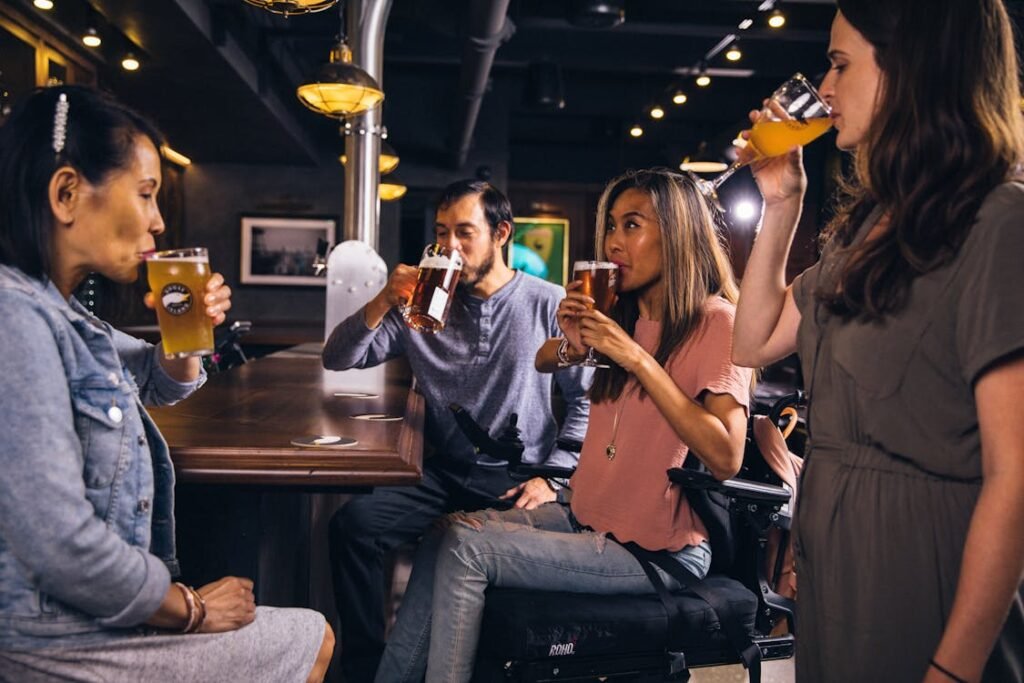
Finding Purpose and Rebuilding Confidence After Limb Loss
One of the most profound aspects of recovery from limb loss is rediscovering a sense of purpose and rebuilding self-confidence.
While the physical and emotional challenges may feel overwhelming at times, finding meaningful ways to engage with life can transform the journey into an empowering process of self-discovery.
Purpose and confidence are not just about returning to your previous routine—they’re about creating a new, fulfilling path that aligns with your abilities, aspirations, and goals.
Redefining Your Identity
After losing a limb, it’s natural to feel as though your sense of identity has been shaken. The activities, roles, or physical attributes that once defined you may no longer feel the same.
Rebuilding confidence starts with redefining who you are—not based on what you’ve lost, but on what you can achieve moving forward.
This process involves exploring new interests, rediscovering old passions, or finding alternative ways to engage in activities you once loved.
For instance, if you were an avid runner before amputation, adaptive sports or prosthetic training may allow you to reconnect with that passion in a different form.
Similarly, creative outlets such as painting, writing, or music can provide a sense of purpose and a way to express emotions during recovery.
Embracing this new identity doesn’t mean letting go of who you were before limb loss—it’s about integrating your experiences into a richer and more nuanced version of yourself.
Setting and Achieving Goals
Goal-setting is a powerful way to rebuild confidence and instill a sense of purpose. Goals provide direction, motivation, and a framework for measuring progress.
These goals can be as small as mastering a daily task with a prosthetic or as ambitious as returning to work or participating in community events.
Breaking larger goals into smaller, actionable steps can make them feel more attainable.
For example, if your goal is to regain mobility, the steps might include completing a certain number of physical therapy sessions, practicing walking with a prosthetic, and eventually navigating public spaces independently.
Each step achieved reinforces your capability and determination, building momentum for further progress.
Celebrating these milestones is equally important. Recognizing and honoring your efforts, no matter how small, fosters a sense of pride and reinforces the belief that you can overcome challenges.
Giving Back and Inspiring Others
For many individuals, finding purpose after limb loss involves giving back to others. Sharing your story, mentoring others facing similar challenges, or volunteering in your community can be incredibly fulfilling.
Helping others not only provides a sense of accomplishment but also reminds you of the strength and resilience you’ve developed throughout your journey.
Connecting with organizations that support amputees, such as advocacy groups or adaptive sports teams, offers opportunities to make a meaningful impact.
Whether it’s participating in awareness campaigns, fundraising for prosthetic access, or simply offering encouragement to someone starting their recovery, your experiences can inspire others while deepening your own sense of purpose.
Cultivating a Growth Mindset
Confidence grows when you view challenges as opportunities to learn and adapt. Cultivating a growth mindset—the belief that abilities and skills can be developed with effort and persistence—encourages resilience and self-improvement.
Instead of seeing setbacks as failures, approach them as learning experiences that help you grow stronger.
For example, if using a prosthetic device feels difficult at first, remind yourself that progress takes time and practice.
Each small improvement, such as taking an extra step or completing a new task, is a testament to your determination and adaptability. Over time, this mindset fosters a deeper belief in your ability to overcome obstacles and achieve your goals.
Embracing a New Chapter
Rebuilding confidence and finding purpose after limb loss is a deeply personal journey. It requires patience, self-compassion, and a willingness to embrace new possibilities.
By focusing on your strengths, setting meaningful goals, and seeking opportunities to connect and contribute, you can create a life that is both fulfilling and empowering.
This new chapter is not defined by what you’ve lost but by the resilience and determination you’ve gained. With every step forward, you’re proving that limb loss does not limit your ability to live a purposeful and confident life.
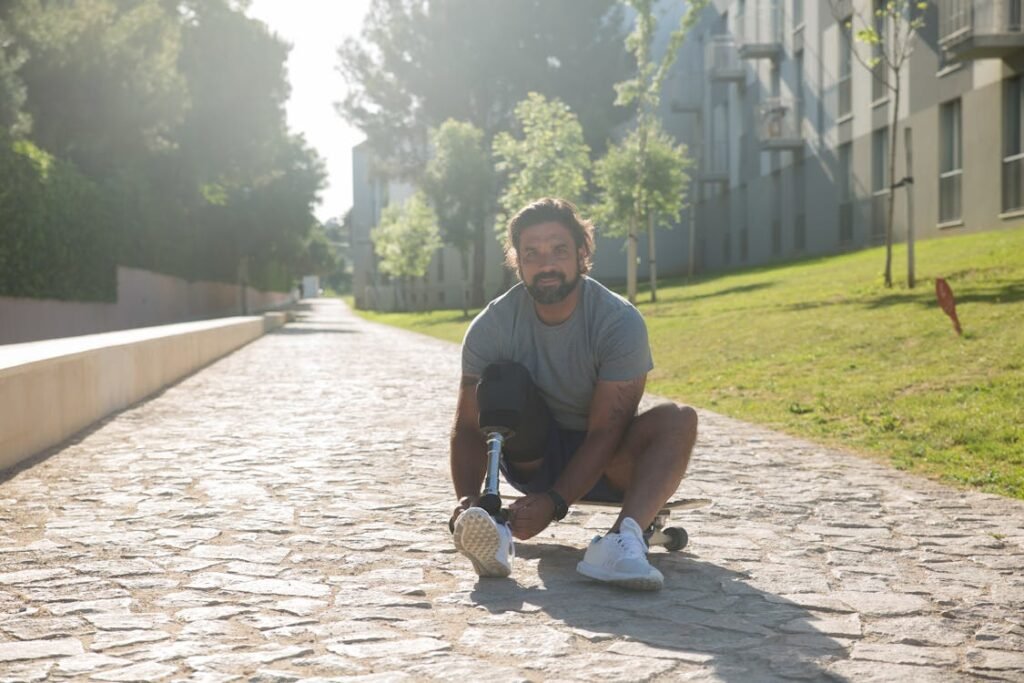
Conclusion
Coping with the psychological impact of limb loss is a journey that involves acknowledging challenges, seeking support, and rediscovering a sense of purpose. While the emotional and physical adjustments can feel overwhelming at times, this journey is also an opportunity for growth, resilience, and self-discovery.
By fostering emotional resilience, reaching out to social and professional support systems, and setting meaningful goals, you can rebuild confidence and find fulfillment in new and unexpected ways. It’s important to remember that progress takes time, and every small step forward is a testament to your strength.
At Robobionics, we understand the complexities of recovery and are committed to empowering individuals to regain their independence and confidence. With innovative prosthetic solutions and compassionate support, we’re here to help you embrace life after limb loss. Contact us today to learn how we can assist you on your journey to healing and empowerment.



